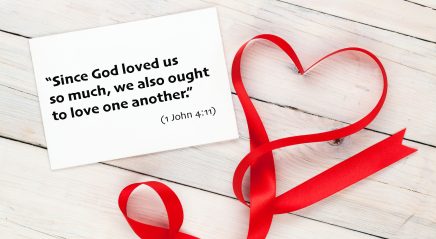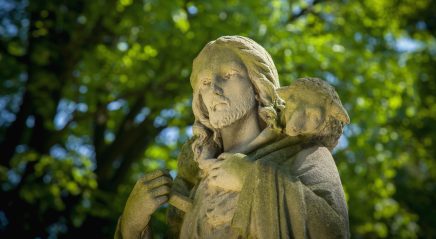Lectionary for May 12, 2024
Seventh Sunday of Easter
Acts 1:15-17, 21-26; Psalm 1;
1 John 5:9-13; John 17:6-19
I have a few core convictions. The theology of Scripture is profoundly concerned with God’s emotional life. Jesus’ earthly ministry is inseparable from—and unintelligible outside of—Second Temple Judaism. The Spirit is always looking over her shoulder, calling out to the church to catch up, as she searches for new people to love and include. And Father, Son and Spirit deeply desire for the church, as Jesus’ body across time and space, to be united as one.
In the reading from Acts, Jesus’ closest followers are at an impasse. Judas Iscariot didn’t allow himself time to repent and come back to the one who ate with him, knowing what betrayal was coming. The Twelve—never the limit of Jesus’ followers but an important inner group—now number 11. Would it even be possible to name someone to fill Judas’ empty position?
Peter, as he consults the Scriptures, finds two opposing positions in the Psalms. Acts 1:20 in the New American Standard Bible reads: “May his place be deserted, let no one dwell in it” (Psalm 69:25) and “May another take his place of leadership” (Psalm 109:8). Well, which is it? Desert the position or give it to another? The group apparently decides that the position should be filled, and they nominate two men: Joseph/Barsabbas/Justus and Matthias. They then cast lots to leave the decision up to God and out of human hands. The lot falls to Matthias, who becomes one of the 12 disciples.
What’s not recorded here is any kind of rancor or fight for position. There’s no “let us sit on your left and right” or arguing about who is the greatest. Apparently, that wrangling for power and authority died with Jesus and was not resurrected (until later …). Instead, the assembled 120 people simply made the choices that they could, narrowed the field to two candidates and then made sure it was God who decided. There was no fraction that left (though that certainly happened later in Acts). There was no “Barsabbas or else” party. Instead, a group went through a leadership change after a horrible tragedy and remained unified.
We have opportunities to literally make Jesus’ prayers come true, and we embrace unity and oneness that celebrates all people present.
In Jesus’ great prayer in the Gospel of John, he recalls what he has done for the disciples. He asks God to care for them after his death and resurrection. Jesus also assures his heavenly Father that he has revealed God’s name to the disciples, who have kept God’s word (John 17:6). They have learned everything that Jesus had to teach them and are truly disciples and friends. As Jesus readies himself to leave them, he asks God to keep the disciples in God’s name so that they will be one just as Jesus and the Father are one (John 17:11). This is my favorite verse in John because it displays Jesus at his most intimately connected.
Jesus wants the same connection between and among his beloved disciples that he experiences with God the Father. Whatever your belief about the Trinity, Jesus, who ought to know, firmly believes that the same sort of unity that God experiences among Godself is possible among human disciples. Jesus asks the Father to make it so! Everything Jesus has belongs to the Father and vice versa. Everything Jesus says is the word of the Father and vice versa. Everything Jesus does is the work of God and vice versa. That is some stunning unity!
What would it truly mean for everything I own to be the property of every other disciple and vice versa? What would it mean for everything you say to be as if they were my thoughts and vice versa? What could it look like for everything the church does in one part of the world/country/city/neighborhood to be in full common cause with the work of the church everywhere else? That is exactly what Jesus is praying for here: for the disciples to be one just as Jesus and God the Father are one.
In the coming weeks across the ELCA, several synods will be discerning who will be their next bishop, including my beloved Indiana-Kentucky at the departure of my boss and friend, Bill Gafkjen. We are a body together, with many parts, fulfilling different functions, knowing and experiencing different realities. What will it look like for us to be united in all our diversities and sameness, as one united people? We have opportunities to literally make Jesus’ prayers come true, and we embrace unity and oneness that celebrates all people present. Jesus and the Father (and the Spirit!) are distinct persons with distinct experiences and knowledges. Yet, Jesus prays for their oneness to be ours. May it be so, Amen!









